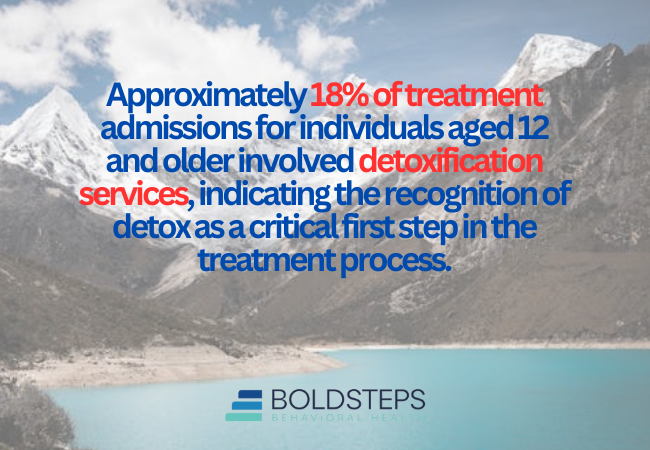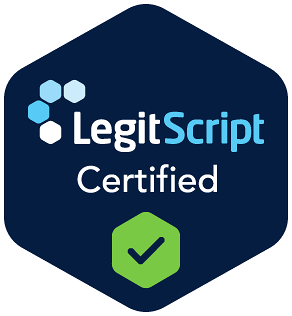Addiction recovery is a multifaceted journey, requiring both physical and emotional healing. For those seeking sobriety, the first and most vital steps often involve detoxification and rehabilitation. While detox addresses the immediate physical effects of substance use, rehabilitation delves deeper, targeting the underlying causes of addiction and teaching essential life skills for sustained recovery. Together, these steps form the foundation of a comprehensive recovery plan.
At Bold Steps Behavioral Health, we recognize the importance of integrating both detox and rehabilitation into a seamless continuum of care. This blog will explore why these two stages are indispensable and how they work together to support individuals on their journey to long-term sobriety.
Understanding Detox: Clearing the Body of Substances
Detoxification, or detox, is the process of eliminating harmful substances from the body. It is the initial step in recovery, addressing physical dependency and withdrawal symptoms.
Why Detox Is Essential
- Physical Stabilization: Prolonged substance use alters the body’s chemistry, creating a physical dependency. Detox helps stabilize the body as it adjusts to functioning without the substance.
- Managing Withdrawal Safely: Abruptly stopping drug or alcohol use can lead to severe withdrawal symptoms, including seizures, hallucinations, or even life-threatening complications. Detox provides a medically supervised environment to ensure safety and comfort.
- Preparation for Rehab: Detox clears the mind and body, creating a clean slate for individuals to fully engage in the therapeutic work that follows.
The Detox Process
- Initial Assessment:
Each client undergoes a comprehensive evaluation to assess their medical history, substance use patterns, and mental health. This allows the medical team to create a personalized detox plan. - Withdrawal Management:
Withdrawal symptoms vary depending on the substance and duration of use. Common symptoms include:- Alcohol: Tremors, seizures, and delirium tremens.
- Opiates: Muscle pain, nausea, and anxiety.
- Benzodiazepines: Rebound anxiety, insomnia, and seizures.
- Stimulants: Depression, fatigue, and intense cravings.
Medications may be used to ease symptoms and ensure a safer detox experience.
- Emotional Support:
Detox is not only physically challenging but also emotionally taxing. Professional staff provide round-the-clock care and encouragement to help individuals navigate this phase successfully. - Transition to Rehabilitation:
Once detox is complete, clients are physically stable and ready to begin the next stage of their recovery journey: rehabilitation.
The Role of Rehabilitation: Building a Foundation for Sobriety
While detox addresses physical dependency, rehabilitation focuses on the psychological, emotional, and behavioral aspects of addiction. This phase is where individuals learn the skills and strategies needed to maintain sobriety and rebuild their lives.
Goals of Rehabilitation
- Understanding Addiction: Clients explore the root causes of their substance use, including trauma, stress, or co-occurring mental health conditions.
- Developing Coping Skills: Therapy equips individuals with tools to manage triggers, cravings, and stress without resorting to substance use.
- Rebuilding Relationships: Programs often include family therapy to repair trust and improve communication with loved ones.
Key Components of Rehabilitation
- Evidence-Based Therapies:
The best rehab centers use proven therapeutic approaches to address addiction and its underlying causes:- Cognitive Behavioral Therapy (CBT): Identifies and changes negative thought patterns that drive addictive behaviors.
- Dialectical Behavior Therapy (DBT): Helps individuals regulate emotions, improve interpersonal relationships, and manage stress.
- Group Therapy: Fosters a sense of community and provides peer support.
- Family Therapy: Rebuilds relationships and creates a supportive home environment for recovery.
- Holistic Therapies:
In addition to traditional therapies, many rehabilitation centers for drugs incorporate holistic approaches, such as:- Mindfulness and meditation to enhance emotional awareness and reduce stress.
- Art and music therapy to encourage self-expression and healing.
- Yoga and physical fitness to promote overall well-being.
- Levels of Care:
Rehabilitation programs offer varying levels of intensity to meet individual needs:- Partial Hospitalization Program (PHP): Combines intensive therapy with the flexibility to return home in the evenings.
- Intensive Outpatient Program (IOP): Allows individuals to continue work or family responsibilities while receiving structured care.
- Outpatient Treatment: Provides ongoing support for those with milder addiction or as a step-down option from more intensive care.
Why Detox Alone Is Not Enough
While detox is an essential first step, it is not a standalone solution for addiction. Without addressing the psychological and behavioral components of substance use, individuals are at a high risk of relapse.
Limitations of Detox Without Rehab
- Unaddressed Root Causes: Detox removes substances from the body but does not explore the emotional or environmental factors that led to addiction.
- No Long-Term Strategies: Without rehabilitation, individuals lack the skills needed to navigate triggers and maintain sobriety.
- Higher Relapse Risk: Detox alone often results in individuals returning to substance use when faced with stress or cravings.
Rehabilitation provides the necessary tools and support to prevent relapse and build a fulfilling, substance-free life.
Why Combining Detox and Rehab Is Crucial
Detox and rehabilitation are two halves of a whole, working together to create a comprehensive recovery experience.
Benefits of Combining Both Steps
- Seamless Transition: Moving directly from detox to rehab ensures continuity of care and minimizes the risk of relapse.
- Holistic Healing: Detox addresses physical dependency, while rehab focuses on emotional and psychological recovery.
- Comprehensive Support: Together, detox and rehab provide the foundation, skills, and resources needed for lasting sobriety.

The Role of Aftercare in Sustained Recovery
Even after completing detox and rehab, ongoing support is critical to maintaining sobriety. Aftercare programs bridge the gap between structured treatment and independent living.
Aftercare Services Include:
- Continued Therapy: Regular sessions to reinforce coping strategies and address new challenges.
- Support Groups: Peer-led groups like Alcoholics Anonymous (AA) or Narcotics Anonymous (NA) provide accountability and encouragement.
- Relapse Prevention Plans: Personalized strategies to identify and manage triggers.
At Bold Steps Behavioral Health, our aftercare services are tailored to each client’s needs, ensuring long-term success.
Why Choose Bold Steps Behavioral Health?
At Bold Steps Behavioral Health, we are committed to providing exceptional care at every stage of the recovery journey. Here’s what sets us apart:
- Comprehensive Services: From medically supervised detox to holistic rehabilitation and aftercare, we offer a full continuum of care.
- Personalized Treatment Plans: Every client receives a tailored recovery plan designed to meet their unique needs.
- Evidence-Based Therapies: We combine proven methods like CBT and DBT with holistic approaches for well-rounded healing.
- Experienced Staff: Our team of licensed professionals is dedicated to supporting individuals every step of the way.
- Tranquil Environment: Our facility provides a peaceful, nurturing space for recovery.
Take the First Step Toward Recovery
Recovery is a journey that begins with a single step. At Bold Steps Behavioral Health, we are here to guide you through detox, rehabilitation, and beyond.
Contact us today at (603) 915-4223 or visit Bold Steps Behavioral Health to learn more about our programs, including alcohol treatment programs, rehab alcohol centers, and more. Let us help you take the bold step toward a healthier, sober future.
Frequently Asked Questions (FAQs)
What is the purpose of detox in addiction recovery?
Detox is the process of removing harmful substances from the body. It addresses physical dependency and helps individuals safely manage withdrawal symptoms under medical supervision.
Why is rehab necessary after detox?
Rehab focuses on the psychological and emotional aspects of addiction. It addresses the root causes, teaches coping skills, and provides strategies to prevent relapse.
Can detox alone lead to lasting sobriety?
Detox alone is not enough. While it removes substances from the body, it does not address the behavioral or emotional factors driving addiction, which are essential for long-term recovery.
What types of therapies are used in rehab?
Rehab incorporates evidence-based therapies like Cognitive Behavioral Therapy (CBT), Dialectical Behavior Therapy (DBT), group therapy, and family therapy. Holistic approaches like mindfulness and yoga may also be included.
What is the difference between PHP, IOP, and outpatient treatment?
- Partial Hospitalization Program (PHP): Intensive therapy during the day with the ability to return home in the evenings.
- Intensive Outpatient Program (IOP): A flexible option that allows clients to balance therapy with daily responsibilities.
- Outpatient Treatment: Less intensive care for individuals who require continued support after completing higher levels of treatment.
How do detox and rehab centers handle co-occurring disorders?
Many centers offer dual diagnosis treatment, addressing both addiction and co-occurring mental health conditions like anxiety, depression, or PTSD.
Are medications used during detox and rehab?
Yes, medications may be used during detox to manage withdrawal symptoms and during rehab for long-term support, such as in Medication-Assisted Treatment (MAT).


